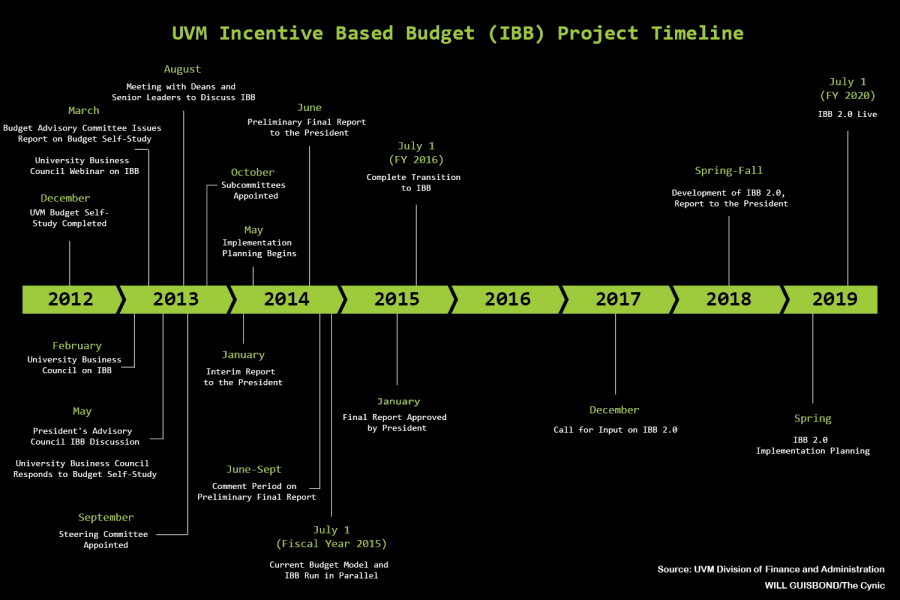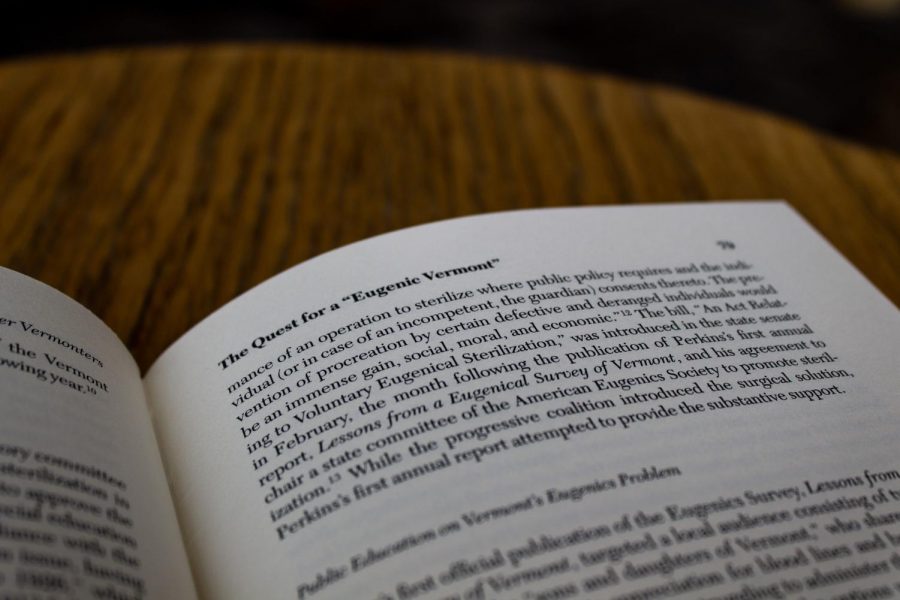When observing the debate that has been surrounding these issues of wages and unions, one will notice that there seems to be two conflicting ideologies in the student body.
The first is that which is staunchly opposed to increasing the wages for the UVM employees and the second ideology is that which embraces the transition to a better paying university. In the SGA senate these opposing ideologies have been represented through the efforts and words of two coalitions.
Bent Cardan and Ben Wildstein are both advocates of the first ideology and have demonstrated their beliefs through their anti-blue collar rhetoric – it has been said by these senators that they will pay for their education but not for those who scrub their toilets and that if people can’t afford to send their children to school then they shouldn’t have children in the first place.
The second ideology has been championed by such senators as Sam Maron and Helaine Alon, who have brought forward an initiative that calls for a reform to establish livable wages for all employees.
Both of these ideological positions have fault in their premises and can be argued against easily. For example, one could argue against the second ideology by saying that increasing wages at UVM would cause the student tuition to rise, which would be harmful to students because it would create more debt and make UVM too expensive for those of modest households.
One could also say that there is no need to increase wages because many of the positions at UVM that do not pay a livable wage are not skilled professions and that the people who are mopping the floors shouldn’t be paid more money than they deserve.
These two arguments could potentially harm the liberal ideology that supports the reform of the wage system, but I will argue that they do not because if a livable wage were to be institutionalized, the students would only see around a three hundred dollar increase in tuition payments, which is only a .009% increase from the current tuition costs of out-of-state students. Therefore, students will not incur a significant amount of college debt because of the reforms.
One could turn the argument to the second objection – that many employees do not deserve to have their wages increased because they are unskilled – with both logos and pathos arguments.
The pathos argument is pretty straight forward: denying people a sufficient wage because one thinks that they do not deserve to be treated equally to privileged citizens, because they are not as educated as privileged citizens, is prejudice. Supporting a prejudice ideology is to support a tyrannical institution that discriminates against others because of their differences.
The logos argument could be that increasing wages would behoove the university because it would attract more applicants so that UVM could be more selective in their hiring practices and obtain the very best employees. Also, increasing wages will improve the quality of life for these employees because it will allow them to live more comfortably and increasing wages will help to narrow the wealth gap at UVM and create a more equitable community.
One could argue against the first, more conservative ideology, by using the pathos argument of prejudice to show that stifling wage increases is ethically corrupt.
One could also argue that maintaining the status quo would cause the advancement of families of impoverished UVM employees to become stagnant. The children of UVM employees, workers who do not earn a livable wage, would be unable to attend college because of their parents’ low wages. This would increase the probability that these children would be born into a life of labor, in which they too would probably be confined to unskilled jobs and unlivable wages, thus making poverty a hereditary condition that is passed down through the generations by a society that does not value human potential or equality.
The members of the conservative ideology would probably say something like this in response to these objections: Look, we are not prejudice simply because we do not endorse a policy that will increase tuition and reward those who do not deserve to be rewarded; we are being pragmatic and are trying to solve the problems of the UVM students, who will always come first because it is our responsibility as senators to represent their interests.
Clearly both ideologies have their faults and there will never be a perspective, which is so persuasive that all people will be able to agree to it completely, but I will now offer a position, which will avoid many of the problems that would result from endorsing either of the two previously mentioned ideologies.
As students we should recognize our privilege and we should recognize the standing that we have in our society – as college graduates we will be able to earn higher wages, become more independent from our employers and be able to provide for our families better then many people in this world can.
Because we have such an auspicious standing, it is often easy for us to forget that there are citizens within our society who do not have a standing equal to our own. Those who labor for low wages will inevitably be dependent upon their job and their employer in a way that will restrict their independence as citizens. They will be unable to take time off from work; if they become sick and require hospitalization, they will be unable to pay the doctor’s fees and will thus be indentured to their debt.
As citizens of a democracy we often argue that we should create as much equality as we can and that no person should be denied citizenship as standing. I am sure that both Sam Maron and Bent Cardan would agree that equality is a better choice than discrimination, which means that this premise bridges the ideological divide and will operate in a way that will satisfy both sides of the debate and will give the senators a good place to start from because it will promote cooperation between the groups with a common interest in mind – promoting an egalitarian democracy.
The second premise to my argument is that to satisfy the democratic ideal of equality and citizenship as standing, we must make certain reforms, for if the governing body always upholds the status quo policies, then the current inequalities will become institutionalized into politics and will make it impossible to create an equal society.
Therefore, if we accept the first two premises: (1) that we should strive toward equality, and (2) that denying a place for social reforms in our governmental policy will inhibit that equality – then it follows that we should support the livable wages campaign. The campaign will promote the equality between citizens, make citizenship more egalitarian and create a precedent for the SGA to reform unequal UVM policies.
This argument should be preferred for three reasons. First, it will create cooperation between the factions of SGA senators by giving them a common goal to achieve – a democracy made up of citizens who are equal in their standing. Also, a common goal will increase the efficiency of SGA, because senators, of both ideologies, will want to pass legislation that supports that common goal.
Second, this argument avoids all of the harms that are associated with the first, more conservative ideology, because it does not upholster prejudice rhetoric or action and it will make UVM a more competitive employer. As well, increasing wages will not significantly effect tuition.
Third, this argument will create a precedent for civil reform, which will allow UVM to create a more egalitarian society that evaluates a person’s merit as a citizen, not their level of education and skill, or any other standard for that matter, by creating citizenship that is equal in standing, so that a person who washes toilets will be just as able to afford the doctor’s fees when they become ill as a wealthy banker would be able to.
















